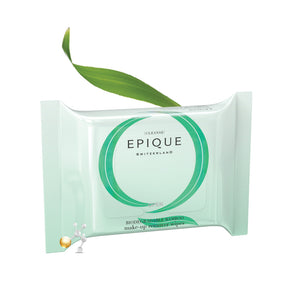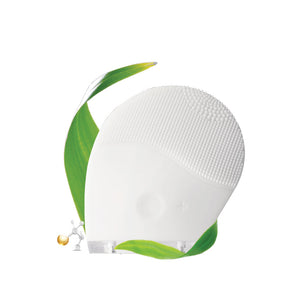Dry Vs Dehydrated Skin: Difference, Symptoms, Causes & Treatment

Dry Vs Dehydrated Skin: Difference, Symptoms, Causes & Treatment
If you’re someone who understands skincare, we are certain you’ve heard of the terms dry skin, dehydrated skin and oily skin types. Most of us fall in either of these categories.
However, it can be quite confusing to understand the difference between dry and dehydrated skin as both sound similar. To save you the trouble, we did a little deep research to help you understand the difference between dry and dehydrated skin.
If you’ve wondered how is your skin breaking out when you have dry skin, or how is it that your oil skin seems dehydrated? Read on to find the answers to these complex skincare questions.
Related Post: How to Build Ultimate Skincare Routine for Dry & Sensitive Skin
What’s the Meaning of Dry Skin?
Dry skin is a type of skin – just like oily and combination skin. Dry skin is defined by the lack of oil, which makes skin itchy, flaky and peeling. An easy way to determine whether you have dry skin is by checking how your skin feels right after washing your face.
If it’s pulling and flaking, it’s clear that you have dry skin on your face. You will feel it especially around your mouth and near your eyebrows. Dry skin doesn’t produce much oil, it relies on moisture from skincare products.
Symptoms of Dry Skin
1. Minimal Breakout
Those who have dry skin also have smaller pores and smoother texture. This also means that they have minimal breakout or acne. However, people with dry skin tend to get hormonal cystic blemishes.
2. Skin Feels Tight
Your skin feels tight, especially right after a shower before you apply any of the skincare products. It will also flake easily or have white patches.
3. Fine Lines and Wrinkles
As you age or due to sun damage, your skin will have more pronounced fine lines and wrinkles.
4. Sensitivity
As your skin get inflamed, it can lead to higher sensitivity. Dry and sensitive skin are two conditions that tend to go hand in hand.
How to Treat Dry Skin on the Face?
Dry skin is a skin type, so it’s not something that needs to be treated. However, there are ways to manage dry skin.
1. Specialised Skincare
Start with using skincare products that are made for your skin’s needs. Look out for labels such as ‘for dry skin’ or ‘for sensitive skin’ on the products. Your skincare routine should include a gentle face wash that doesn’t dry your skin like Epique’s Detoxifying Foam Cleanser. It is lightweight and soap-free, which removes impurities without stripping the skin of moisture. It also helps instantly hydrate and soften the skin. We guarantee that you won’t feel the tightness on your skin after using this cleanser. And, you won’t need to rush to apply moisturiser.
2. Add in a Serum
Applying a serum before moisturising helps add an additional layer of nourishment to your skin. Epique’s Intensive Cellular Repair Serum enhances the skin’s moisture levels and leaves it feeling restored, hydrated and rejuvenated.
3. Use the Right Moisturiser
Your moisturiser should include the right amount of emollients that will help create a barrier to prevent moisture loss. Epique’s Intensive Regenerating Cream is infused with Phyto-Concentrates like Butyrospermum Parkii Butter Extract that helps improve skin hydration. This product also helps fine lines, wrinkles and smoothens uneven skin tone.
4. Never Leave Your Skin Bare
Don’t leave your skin without a moisturiser for more than 60 seconds after washing or cleansing.
What’s the Meaning of Dehydrated Skin?
An easiest way to find out if you have dehydrated skin is by doing the pinch test. Pinch a small amount of skin on your cheek, abdomen or chest and hold it for a few seconds. If your skin comes back to its original look quickly, then it is not dehydrated. However, if it takes a few moments to bounce back, it is highly likely that you are dehydrated.
Dehydrated skin is a condition that occurs when there is lack of water in the skin. Dehydrated skin can affect anyone, even those with oily or combination skin. Dehydrated skin tends to look dull and can even show signs of ageing such as wrinkles and loss of elasticity.
What Are the Causes of Dehydrated Skin?
Dehydration can be caused by a host of factors such as weather, lifestyle issues like smoking, drinking alcohol or not drinking enough water. Other factors such as having heaters or air conditioners on can also lead to dehydrated skin. You may also want to look into your skincare products – using overly drying products such as bar soaps, high-foaming cleansers or retinoid can also lead to dehydrated skin.
Symptoms of Dehydrated Skin
Dehydrated skin tends to feel like dry skin. Your skin will feel tight even after moisturising it. It will probably also have some inflammation and redness.
How to Treat Dehydrated Skin?
1. Drink Water
Start by treating it from the root, add more water and hydration to your diet. Drink at least 12 glasses of water a day, add fruits like watermelon and orange to your diet. Cut down on caffeine, alcohol as these are dehydrating.
2. Use a Humidifier
Sometimes it may not be your water intake but your environment that could be leading to dehydrated skin. Use a humidifier at home, which will ensure that there is balance of moisture in your atmosphere. You can also keep a bowl of water in your room.
3. Don’t Over-Exfoliate
Stick to a once a week exfoliation routine. Over exfoliation can strip your skin of moisture.
Whether you suffer from dehydration or have dry skin, make sure you follow these simple steps to control your condition. We hope you have also understood the difference between dry and dehydrated skin. Also pay attention to seasonal changes and how it impacts your skin. And most importantly, remember to enjoy the skin you’re in and stay Beauty Eternal.


